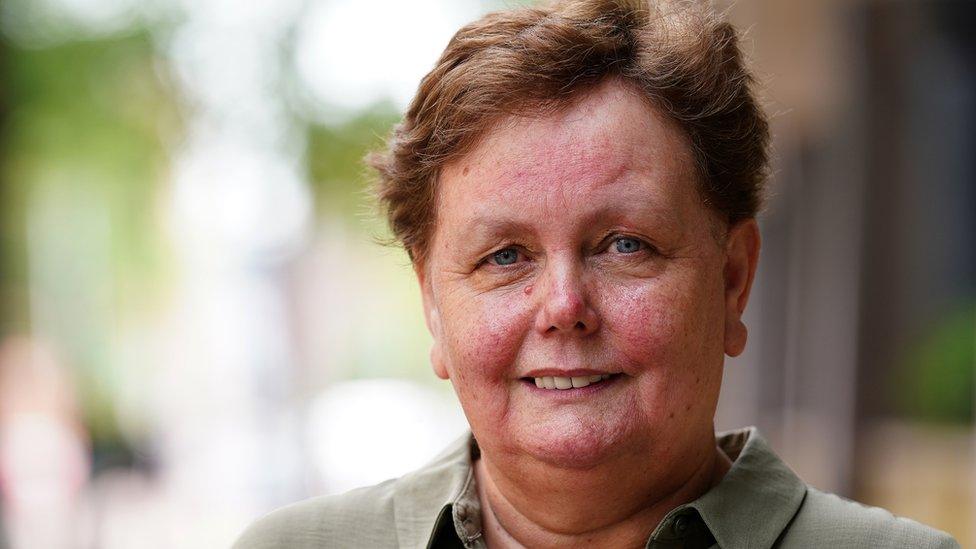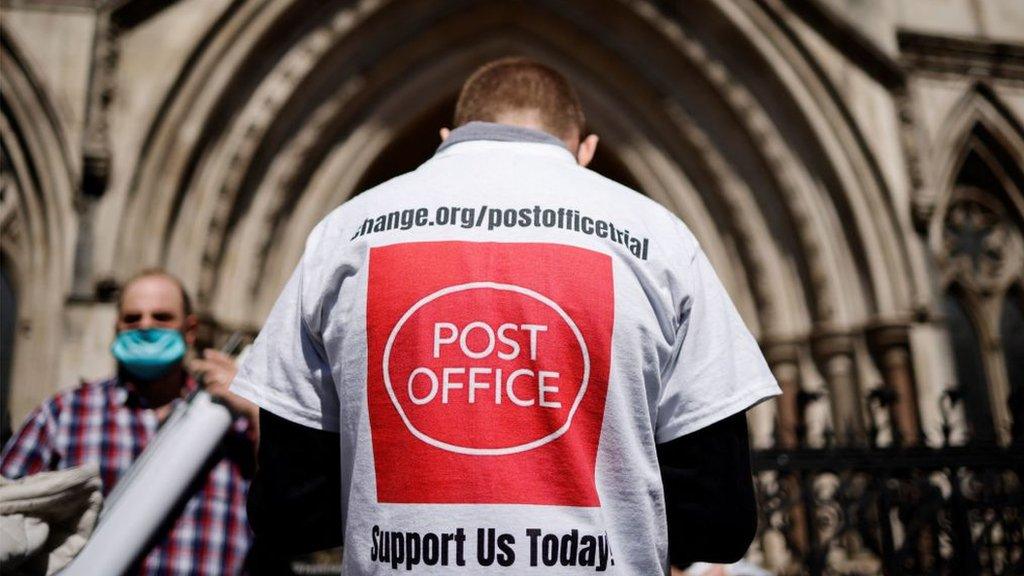NI Post Office ex-investigator apologises to Horizon victims
- Published
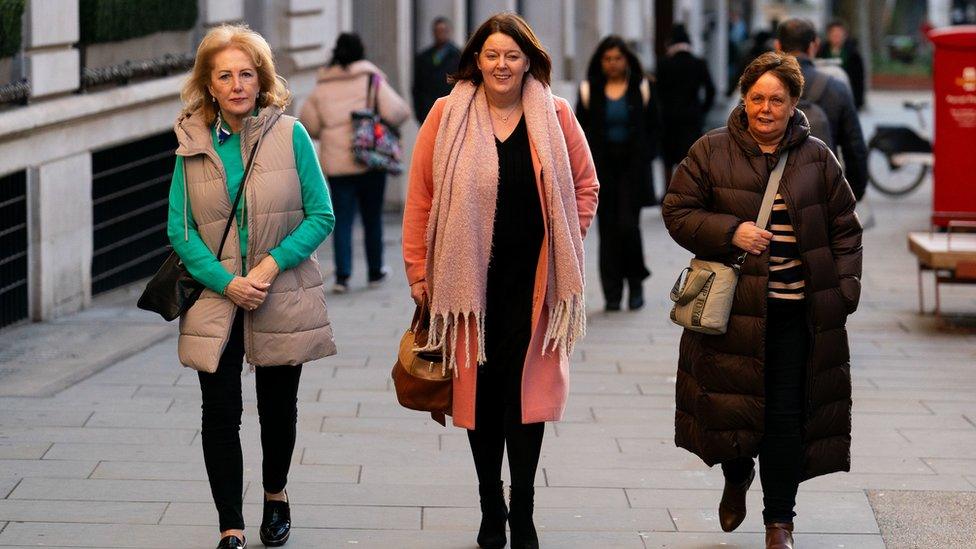
Former sub-postmistresses Maureen McKelvey, Katherine McAlerney and Heather Earley walked to the inquiry hearing together
A former Post Office investigator who was based in NI has apologised to those caught up in the Horizon IT scandal.
Suzanne Winter worked as an investigator for the Post Office in Northern Ireland from 2001 to 2014.
She said she was "devastated" by the revelations which had emerged and that she was always told the flawed system was "robust."
But an affected former sub-postmistress said Ms Winter's apology lacked "heart".
"It was an apology but that's all I can say," Maureen McKelvey from Omagh said after watching Friday's hearing.
"There was no heart put into it. It really was just an apology, she felt she had to say something," Ms McKelvey told BBC NI.
"I'm here and I wanted to hear what she had to say, we have to accept what she said."
'Devastated'
On Friday, Ms Winter faced questions about the criminal investigation of Maureen McKelvey.
She is one of four former sub-postmistresses from Northern Ireland who were are at the inquiry in London on Friday.
The four women were all affected by the Horizon IT scandal.
Ms McKelvey was prosecuted but subsequently found not guilty after she experienced shortfalls of £30,000.
Ms Winter was also involved in the cases of the three other former sub-postmistresses attending the inquiry - Deirdre Connolly, Heather Earley and Katherine McAlerney.
At Friday's hearing, Suzanne Winter said she was "devastated" by the revelations which had emerged - and that she was always told the flawed system was "robust."
"I trusted the Post Office," Ms Winter said.
"It was the government, I'd worked for them all my life practically."
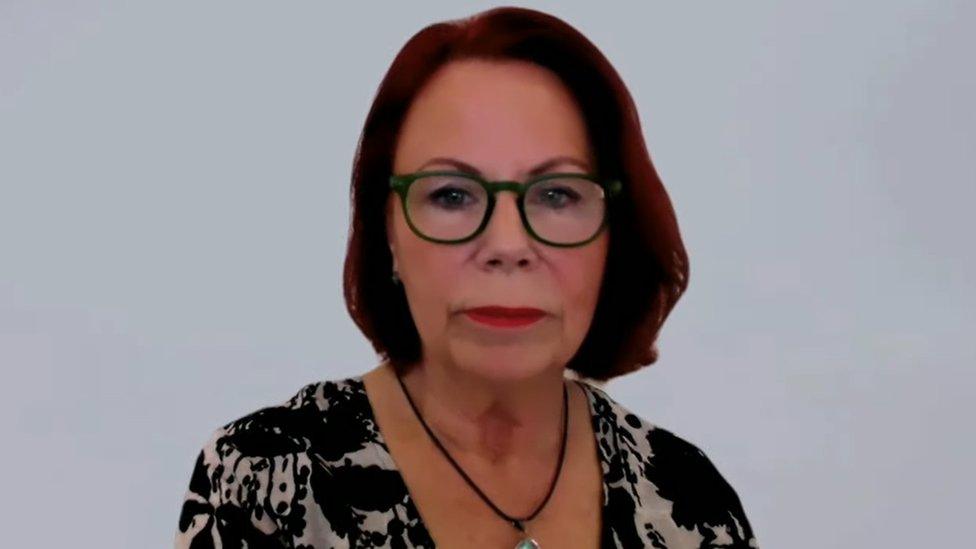
Suzanne Winter apologised while giving evidence at the Post Office inquiry
"I just could not believe the deceitfulness and I am so sorry for anyone who was wrongfully prosecuted because of this system," she added.
"I would like to think I did everything to the best of my ability."
She said that what she now knows "is completely different to what I knew then."
At the conclusion of Friday's hearing Chris Jacobs, a lawyer representing Maureen McKelvey, asked Ms Winter if she would say sorry to his client.
"Of course I would say sorry to anybody who has been put through what I can only imagine is a nightmare, but I did not know of any problem with the Horizon system," Ms Winter said.
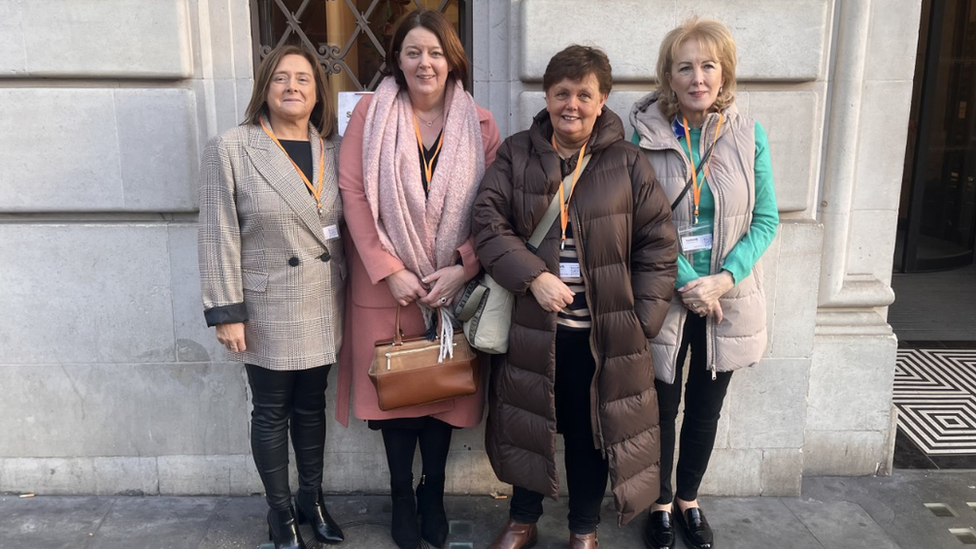
Deirdre Connolly, Katherine McAlerney, Heather Earley and Maureen McKelvey attended the inquiry in London in person
Earlier on Friday, Suzanne Winter told the inquiry that she received training in Milton Keynes when she began her role with the Post Office.
A lawyer representing the inquiry asked Ms Winter whether she was given any guidance on when audit data, relating to investigations, should be requested from the company behind the flawed IT system, Fujitsu.
"In that initial training, no, you were not told how to get any information from Fujitsu, because we were told that the system was 100% reliable," Ms Winter said.
Ms Winter, who was giving evidence remotely, told the inquiry she was the sole investigator in Northern Ireland during her time in the role, despite holding a managerial grade.
"It was always a one-person department, you didn't have staff, that was just a title."
Recovery of monies
She said any specific guidance she received on Northern Irish law and procedure came mainly from the "police and Crown Prosecution Service".
The inquiry also heard that as an investigator, Ms Winter was set a target of 65% for the recovery of monies from those who were under investigation.
"That 65% rate was for fraud loss recovery, the senior team in the security were always about trying to get as much money back as they possibly could," Ms Winter said.
She also agreed with a lawyer representing the inquiry that there had been a lower target rate for fraud recovery in previous years.
"Yes I do believe there was and it was maybe the last three, four years, there was more pressure put on everyone by the senior team to increase this figure."
More than 900 sub-postmasters and postmistresses were prosecuted for stealing money because of incorrect information provided by a computer system called Horizon.
The Post Office itself brought many of the cases to court and, between 1999 and 2015, it prosecuted 736 people - an average of one person a week.
Another 283 cases were brought by other bodies, including the Crown Prosecution Service.
Many maintained their innocence and said they had repeatedly reported problems with the software.
Some of those convicted went to prison for false accounting and theft and many were financially ruined.
The inquiry continues.
Related topics
- Published25 January 2024
